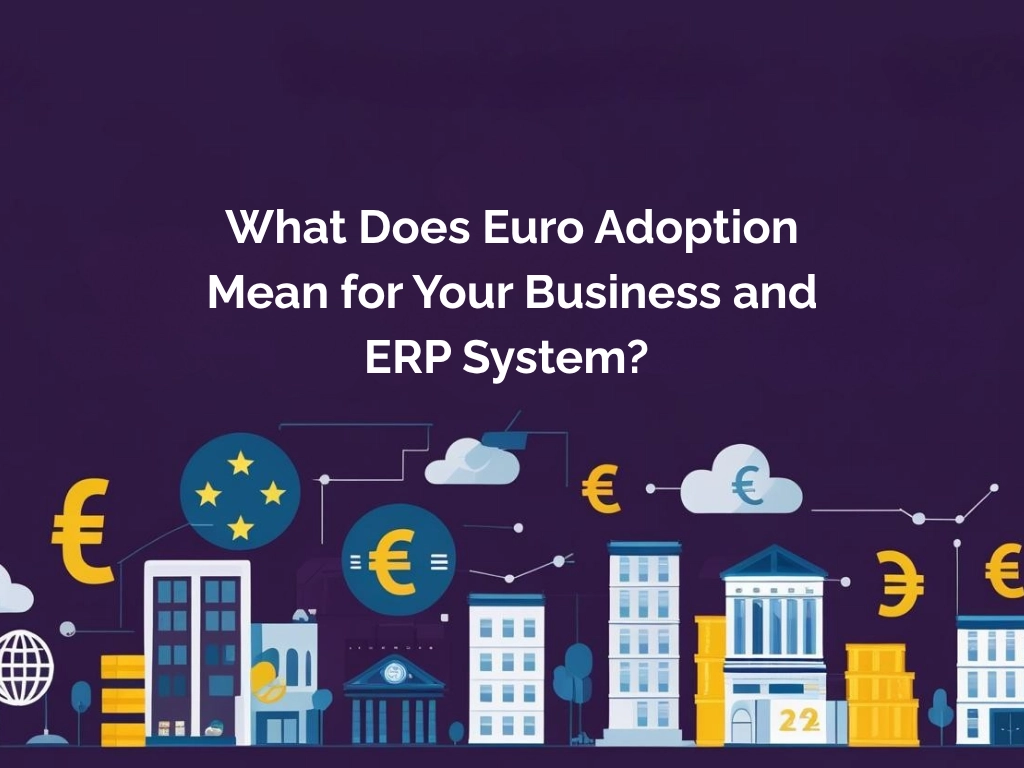What Does Euro Adoption Mean for Your Business and ERP System?
The European Central Bank has officially confirmed that Bulgaria has met all the necessary criteria to join the Eurozone, starting January 1 2026, and the conversion to Euro is just a matter of time. For households, this may seem like a change of coins and banknotes. For businesses, however, it's something far more complex - and far more critical.
From invoicing and pricing to financial reporting and compliance, the transition to the euro affects every part of your organization’s financial structure. The backbone of that structure? Your ERP system.
Why This Change Is Bigger Than It Seems
The euro adoption is not just an economic milestone - it's a business transformation trigger. For companies in Bulgaria, it will require:
-
Switching to euro-based accounting and reporting
-
Updating pricing strategies and contractual terms
-
Complying with new fiscal and legal frameworks
-
Managing dual currency operations during the transition period
And these changes won't happen on paper; they'll run through your ERP.
ERP: The Core System That Must Adapt
Whether you use Microsoft Dynamics 365 Business Central or another ERP platform, the shift to the euro will impact:
-
Base currency configuration
-
Opening balances and historical financial data
-
Templates, invoices, statements and reports
-
Inventory valuation, cost accounting and cross-system integrations
-
Audit readiness and legal traceability
Your ERP isn’t just a software tool; it’s the engine that keeps your operations running. A poorly managed currency transition can cause data inconsistencies, reporting errors, or worse - compliance issues.
Insights from Dynamics Connect 2025: Being Prepared Is Power
At Dynamics Connect 2025, hosted by NavTech in Sofia last month, we brought together financial leaders, ERP experts and policymakers to discuss the implications of euro adoption. The takeaway was clear:
Technology will define how smoothly businesses adapt.
“Many myths surround this transition. The truth is, Bulgarian businesses already have the tools. What they need is a clear plan.”
- Tsvetoslav Angelov, Director of Supervisory Policy, Bulgarian National Bank
Our panel showcased practical solutions for euro migration in ERP - including automated conversion processes, historical data handling, and dual reporting within Dynamics 365 Business Central.
How NavTech Supports the Transition
At NavTech, we specialize in aligning ERP systems with regulatory, operational, and financial changes. Our team is already working with businesses across industries to:
-
Assess system readiness and risks
-
Plan euro migration scenarios
-
Implement and test the transition in Dynamics 365
-
Ensure full compliance, accuracy and continuity
Together with our partners from Croatia, DignetSoftware, we offer a powerful solution – the Euro Conversion Tool – designed to support your business through a smooth and efficient transition to the euro. Fully compatible with all versions of Business Central and Dynamics NAV (both on-premises and cloud), the tool ensures accurate data conversion with minimal implementation time and disruption.
The conversion of system data to euro is based on the fixed exchange rate determined by local authorities at least six months prior to the official euro adoption date. This rate is configured within the system settings and is automatically applied during the conversion of all transactional data.
Learn more about the Euro Conversion Tool
The Bottom Line: Now Is the Right Time
Euro adoption is not a future event. It's a present-day priority.
Preparing your ERP system early ensures you avoid disruptions, stay compliant, and seize the opportunity to modernize. NavTech is ready to guide you through this change - with expertise, proven tools, and the insights that matter.
Contact us and let’s prepare your ERP for Bulgaria’s next chapter in the Eurozone.







